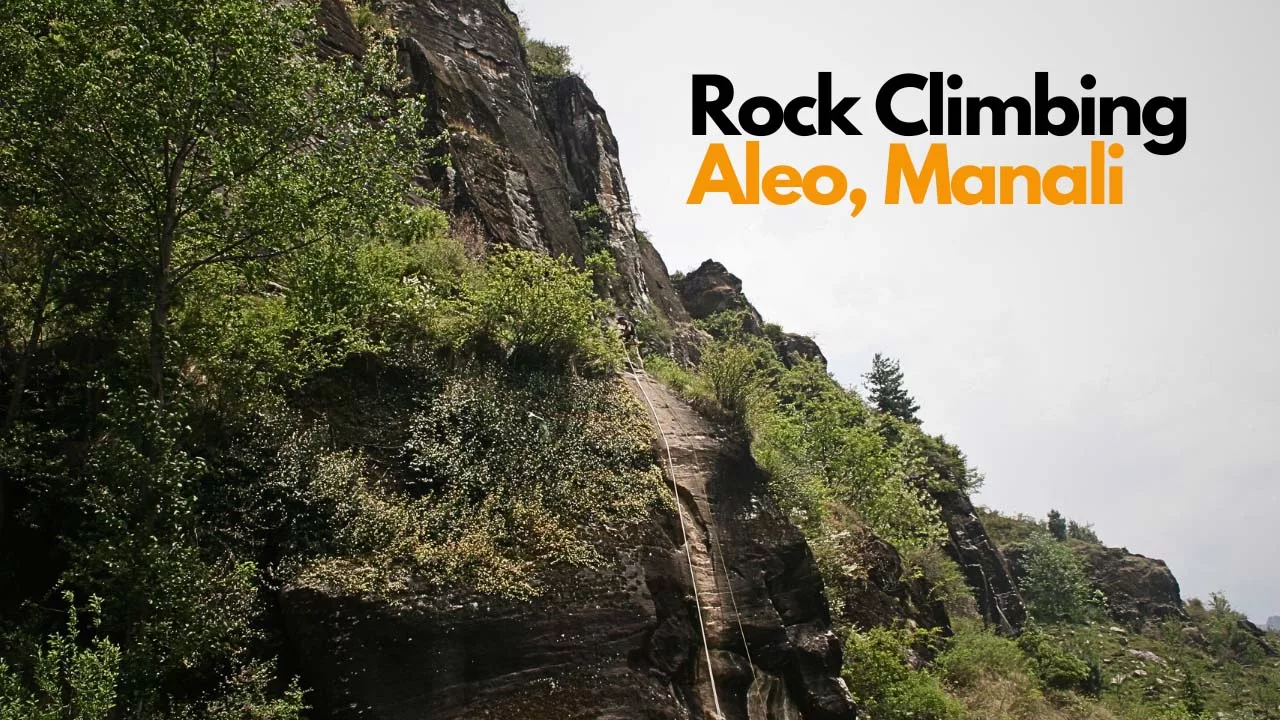Essential Rock Climbing Equipment: Tools for Vertical World
Knowledge Base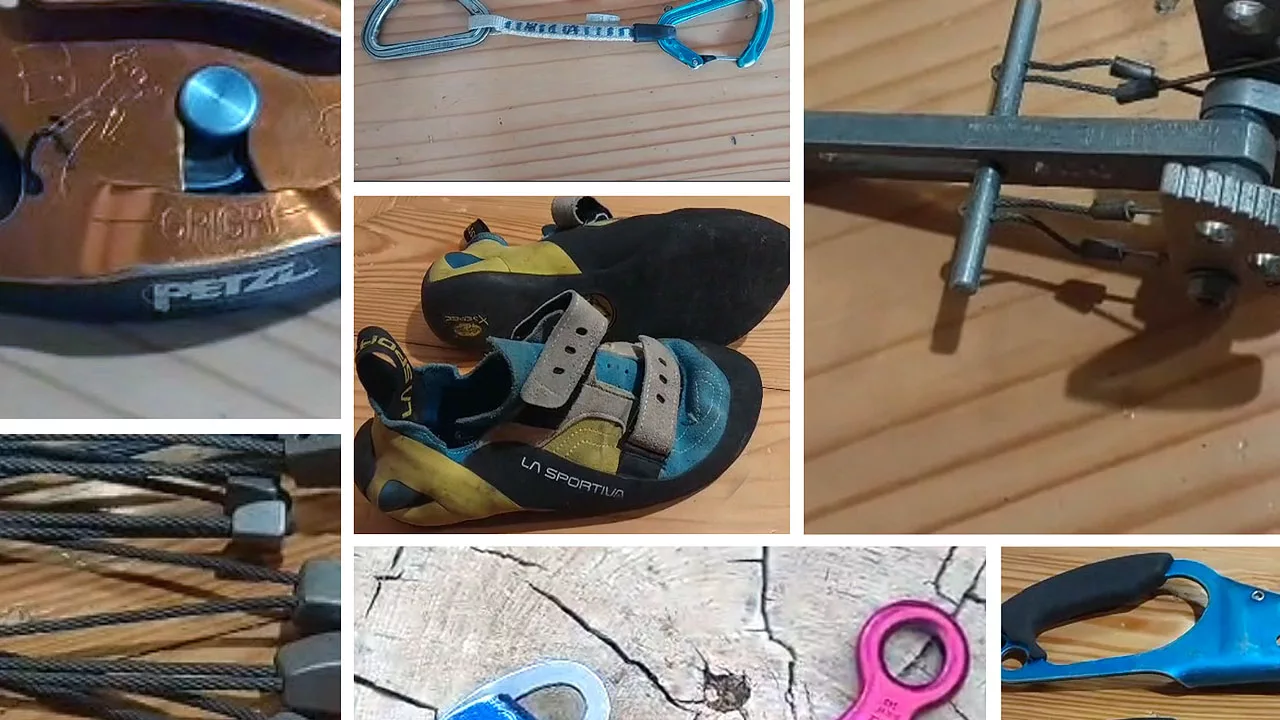
As you prepare to conquer the peaks, it’s essential to familiarize yourself with the terminology associated with Essential Rock Climbing Equipment. From harnesses to carabiners, each piece of gear plays a crucial role in ensuring your safety and success on the vertical terrain. In this article, we will explore 15 mountain terms related to rock climbing equipment, also accompanied by practical usage. By understanding these terms, you’ll gain valuable insights into the tools. That will accompany you on your ascent, helping you to navigate the rugged landscapes with confidence and skill.
List of Rock Climbing Equipment
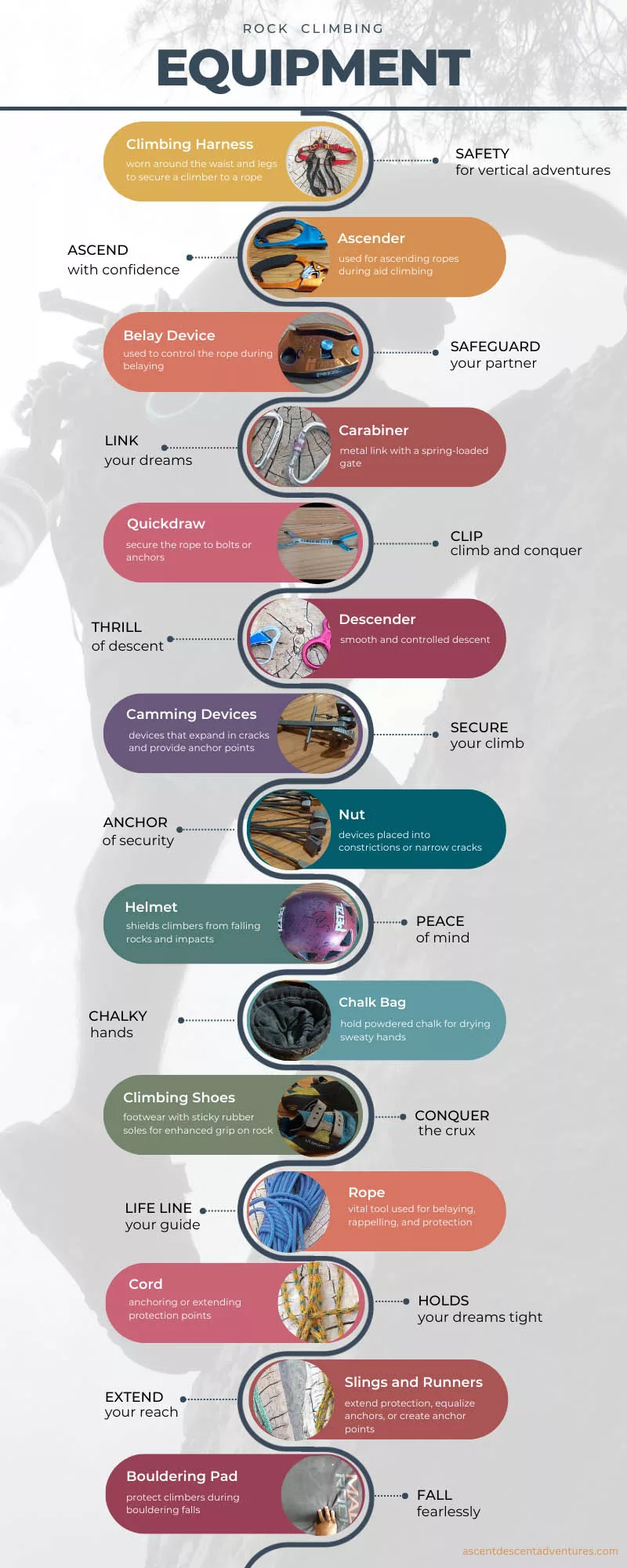
1. Ascenders: “Ascend with confidence and reach new heights!”
Usage: Ascenders are mechanical devices used for ascending ropes during aid climbing or ascending fixed lines.
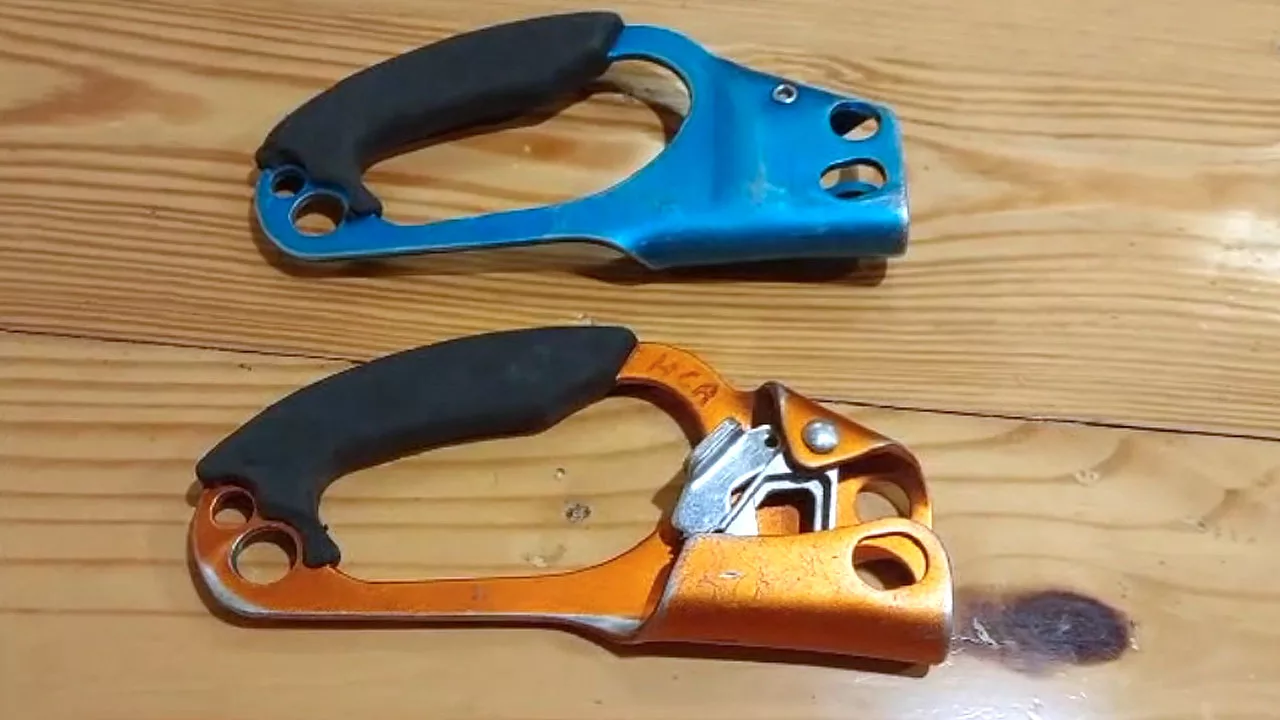
Example: “With the help of ascenders, I effortlessly ascended the rope, reaching the top of the pitch in no time
2. Belay Device: “Control the climb and safeguard your partner!”
Usage: A belay device is a mechanical tool used to control the rope during belaying, providing friction and stopping power.
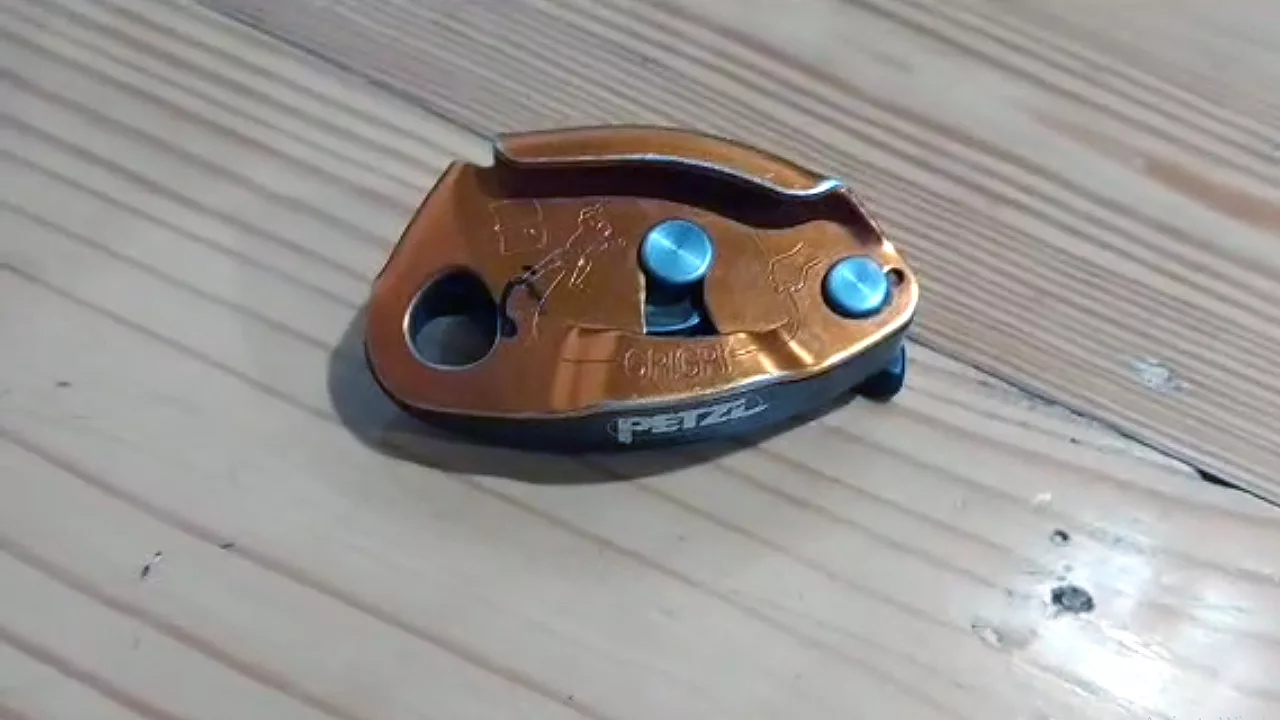
Example: “As my partner made their way up the wall, I ensured a smooth descent by using the belay device to manage the rope.”
3. Bouldering Pad: “Fall fearlessly and protect yourself from the impact!”
Usage: A bouldering pad is a thick, cushioned mat used to protect climbers during bouldering falls.
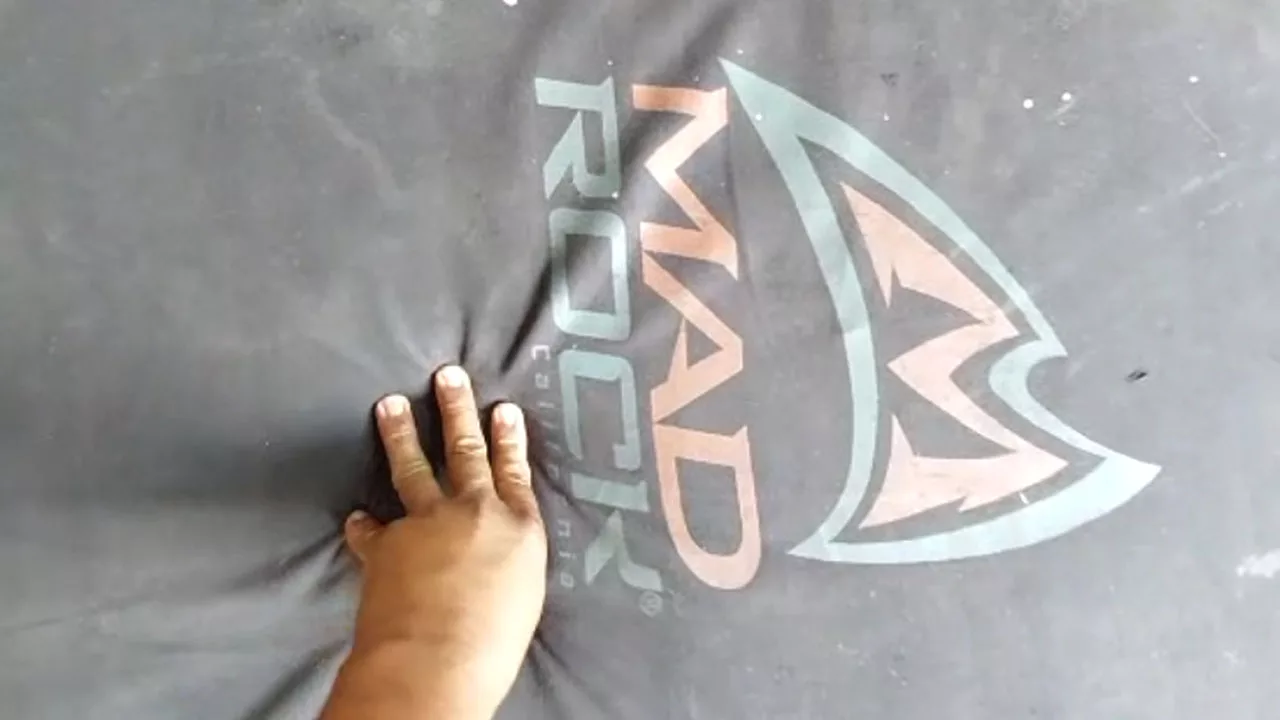
Example: “With the bouldering pad beneath me, I attempted the challenging move, knowing that even if I fell, I’d land safely.”
4. Camming Devices (Cams): “Trust the cam and secure your climb!”
Usage: Camming devices are spring-loaded devices that expand in cracks and provide anchor points for protection.
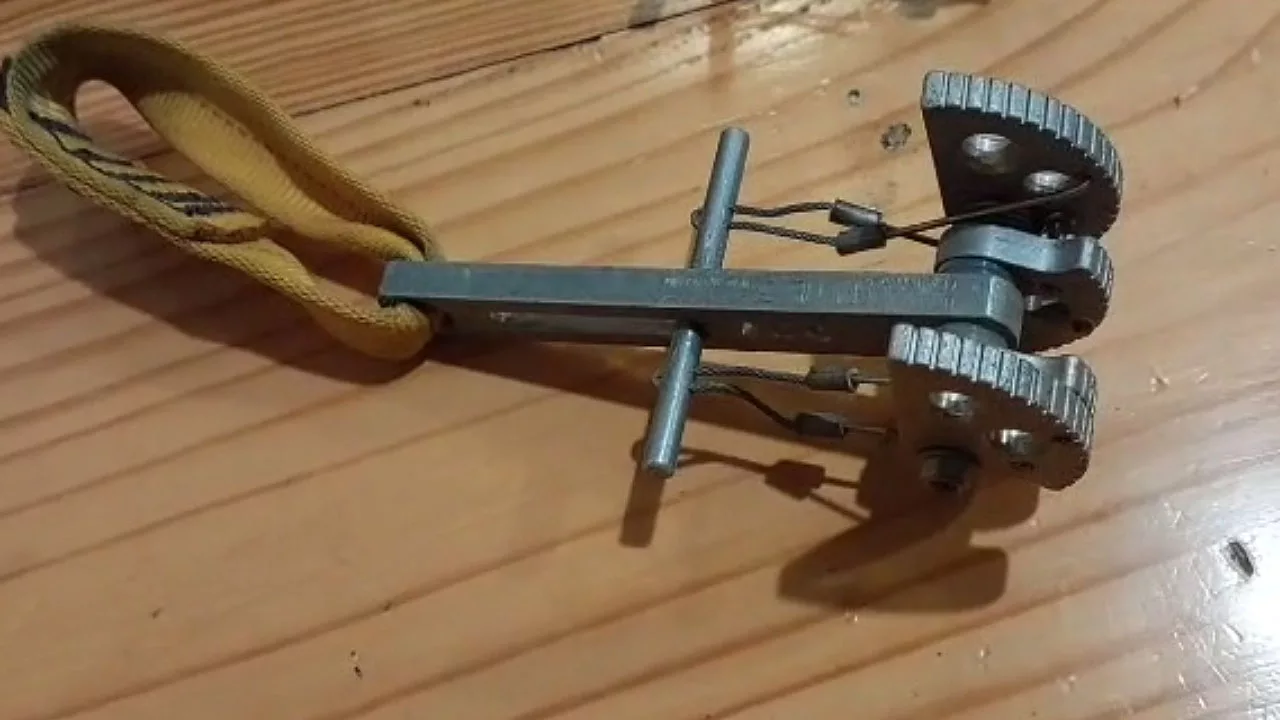
Example: “I carefully placed the cam in the crack, ensuring it held firmly and provided a solid anchor for my protection.”
5. Chalk Bag: “Keep a grip on your dreams with chalky hands!”
Usage: A chalk bag is a small bag used to hold powdered chalk for drying sweaty hands and improving grip.
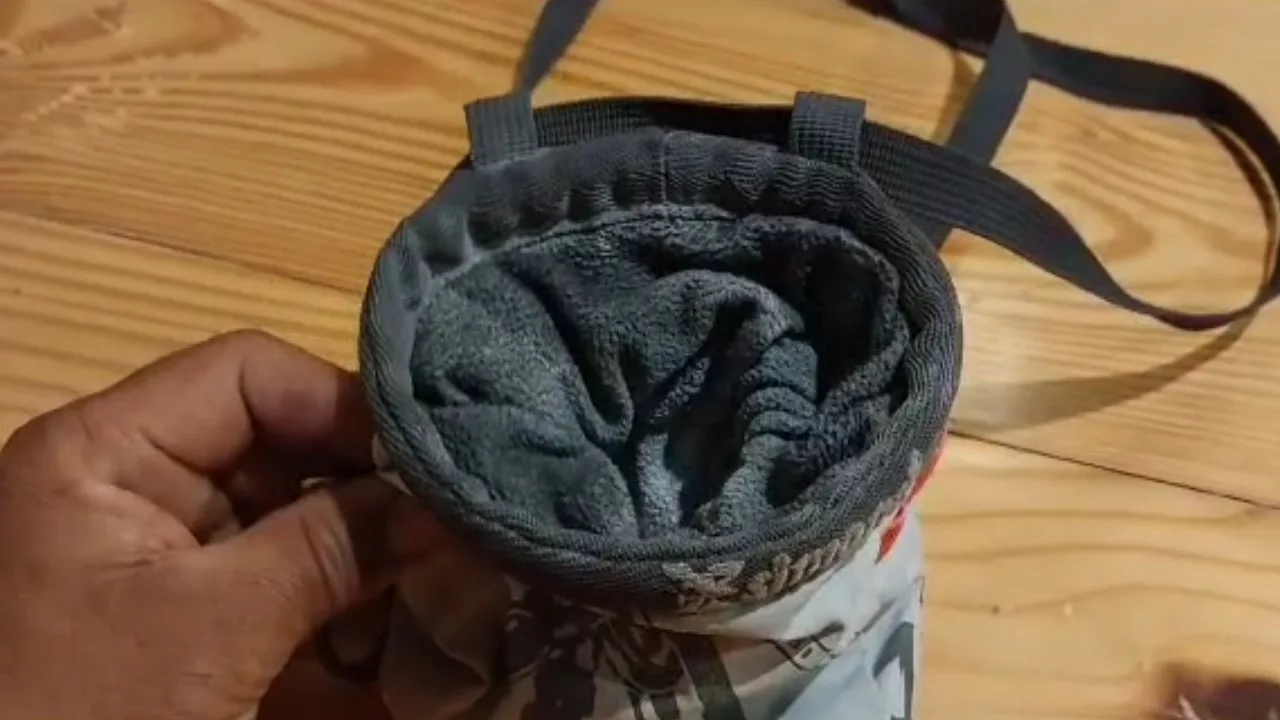
Example: “Before attempting the challenging move, I dipped my hands into the chalk bag, ensuring a firm grip on the holds.”
6. Climbing Harness: “Safety and comfort for your vertical adventures!”
Usage: A climbing harness is a specialized safety system worn around the waist and legs to secure a climber to a rope.
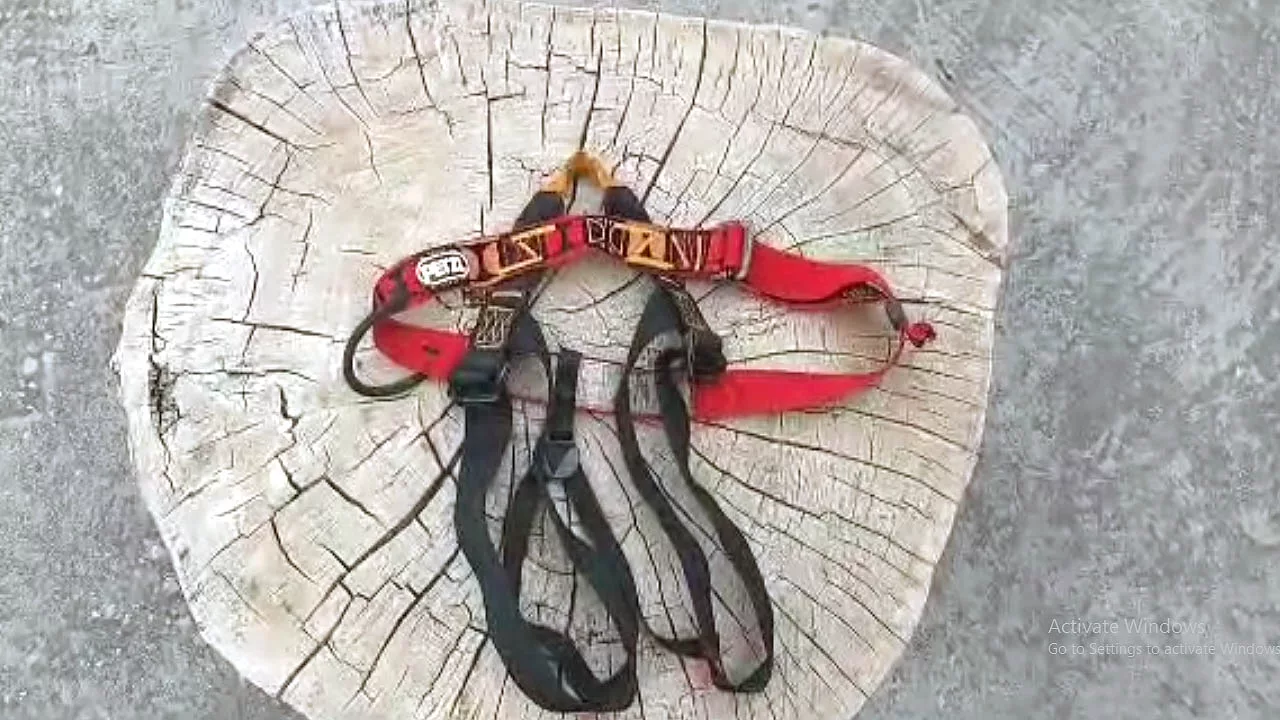
Example: “With the climbing harness securely fastened, I felt safe! Also supported as I made my way up the rock face.”
7. Climbing Shoes: “Step up with confidence and conquer the crux!”
Usage: Climbing shoes are specialized footwear with sticky rubber soles for enhanced grip on rock surfaces.
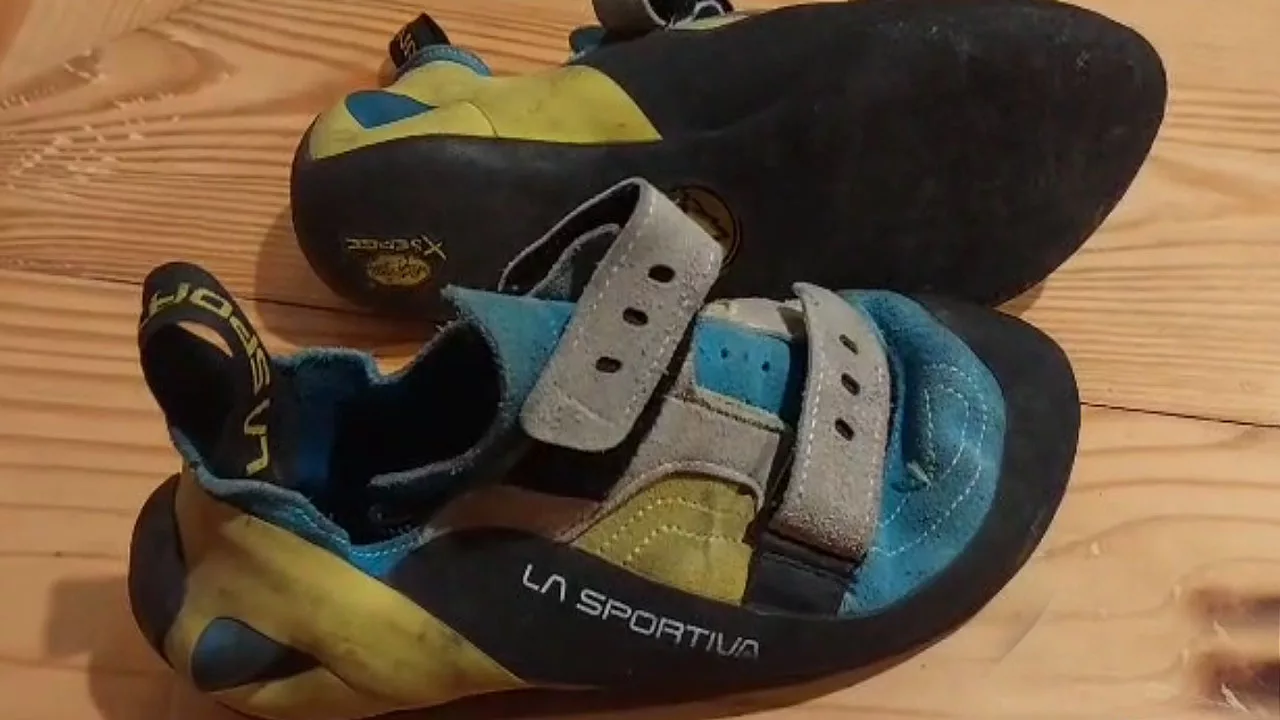
Example: “With my climbing shoes on, I felt the rock beneath my feet. Also gained the traction needed to overcome the challenging section.”
8. Helmet: “Protect your head and climb with peace of mind!”
Usage: A helmet is a protective headgear that shields climbers from falling rocks and impacts.
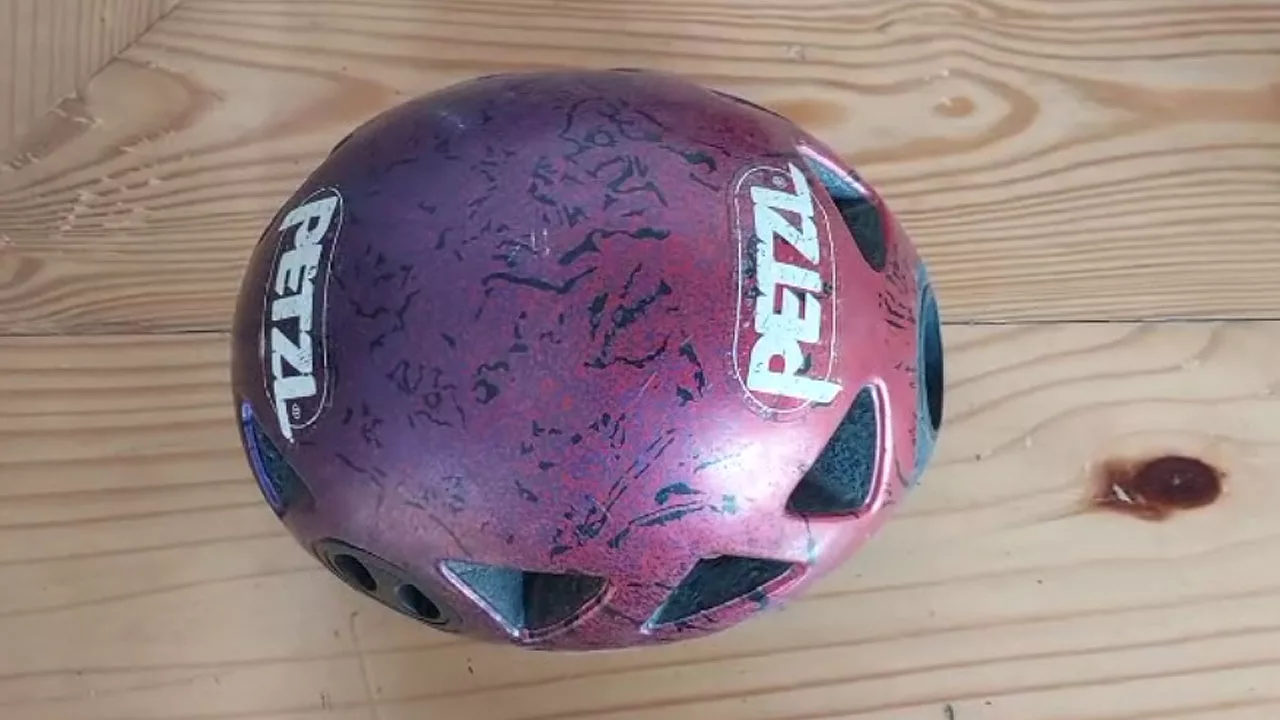
Example: “As loose rocks rained down from above, I was grateful for my helmet! Especially the helmet protected me from potential head injuries.”
9. Nuts (Stoppers): “Place the nut and find your anchor of security!”
Usage: Nuts, also known as stoppers, are passive climbing protection devices placed into constrictions or narrow cracks.
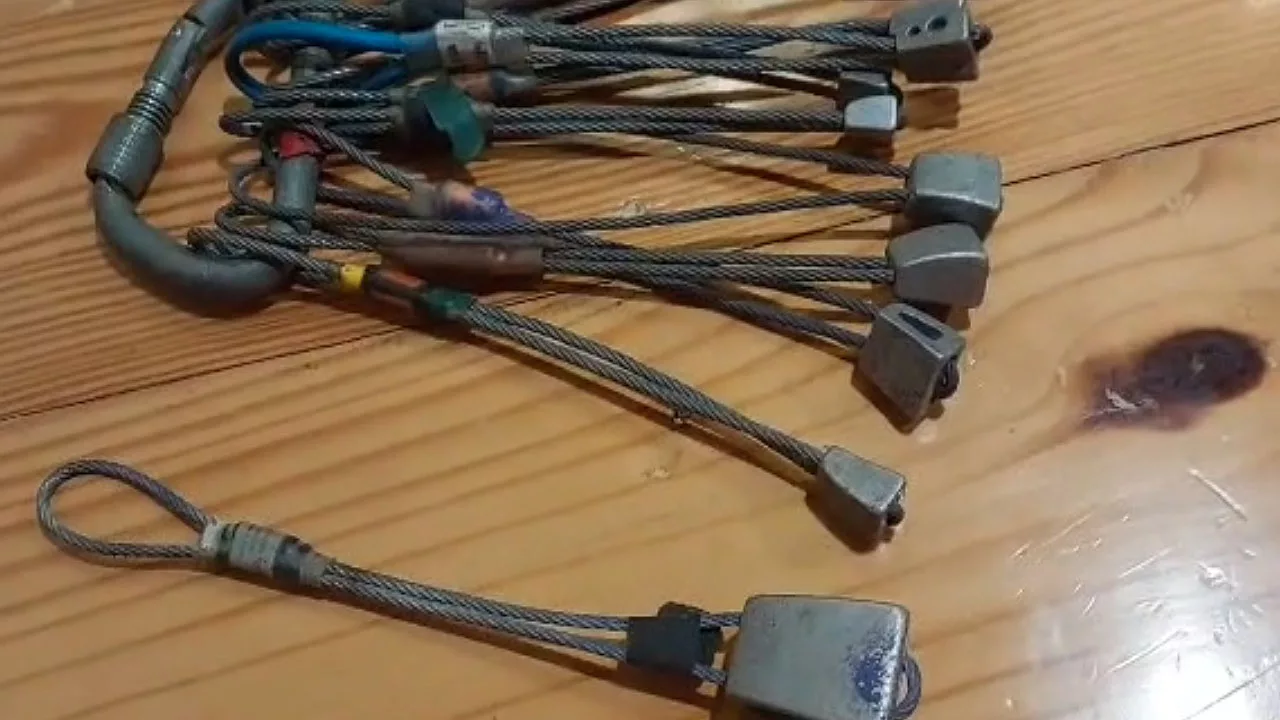
Example: “I carefully selected the right-sized nut and wedged it into the crack, basically creating a reliable anchor for protection.”
11. Quickdraws: “Clip, climb, and conquer with confidence!”
Usage: Quickdraws are sets of two carabiners connected by a webbing or wire. The carabiner gate is used to secure the rope to bolts or anchors.
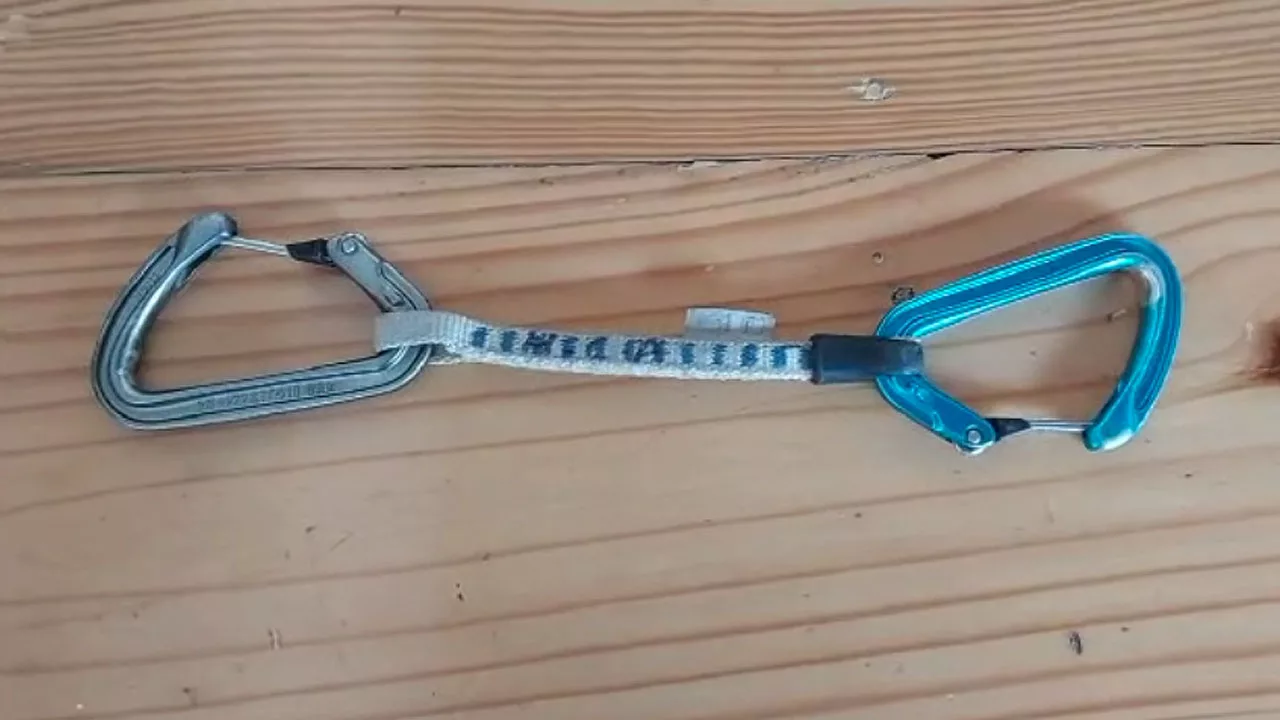
Example: “I swiftly clipped the rope to the quickdraws, knowing that, they would provide reliable protection as I ascended.”
12. Carabiner: “Connect, secure, and unlock new climbing possibilities!”
Usage: A carabiner is a metal loop with a spring-loaded gate used for connecting various climbing components.
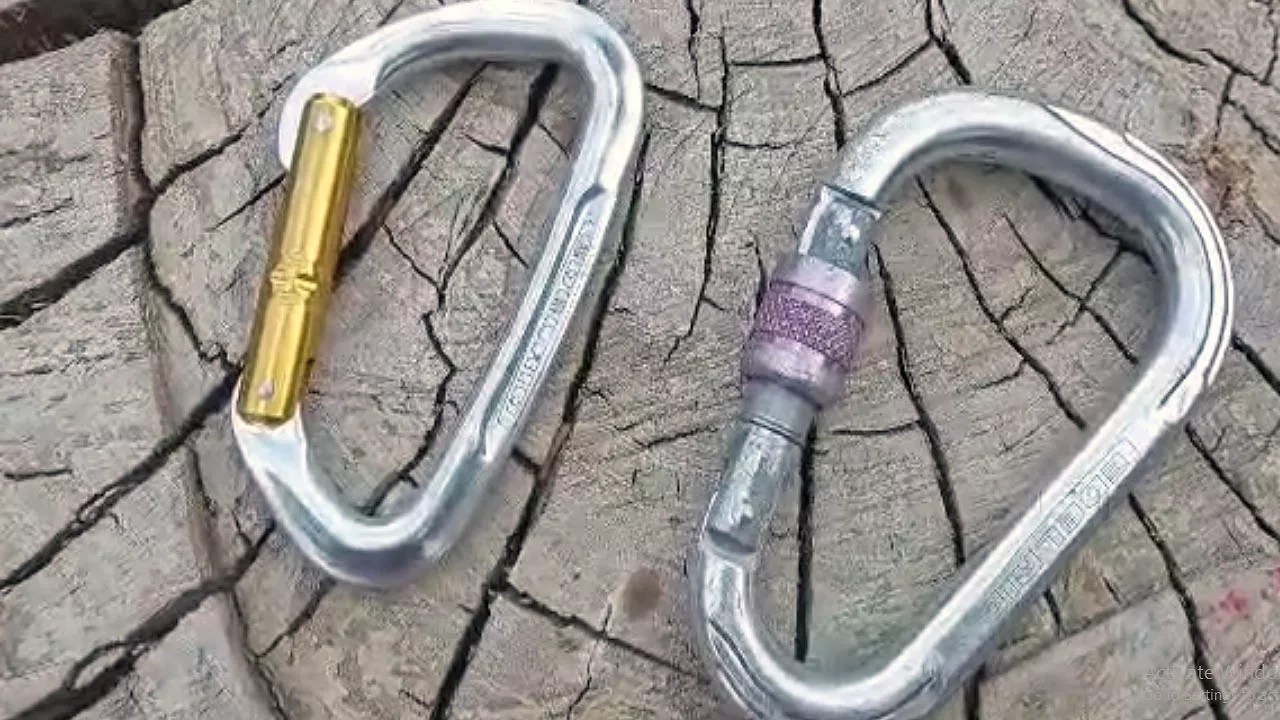
Example: “I clipped the carabiner to my harness, ensuring a secure connection to the rope for a safe climb.”
13. Rope: “Your lifeline in the vertical realm, trust it with every ascent!”
Usage: The rope is a long, strong cord used for climbing, belaying, and rappelling.
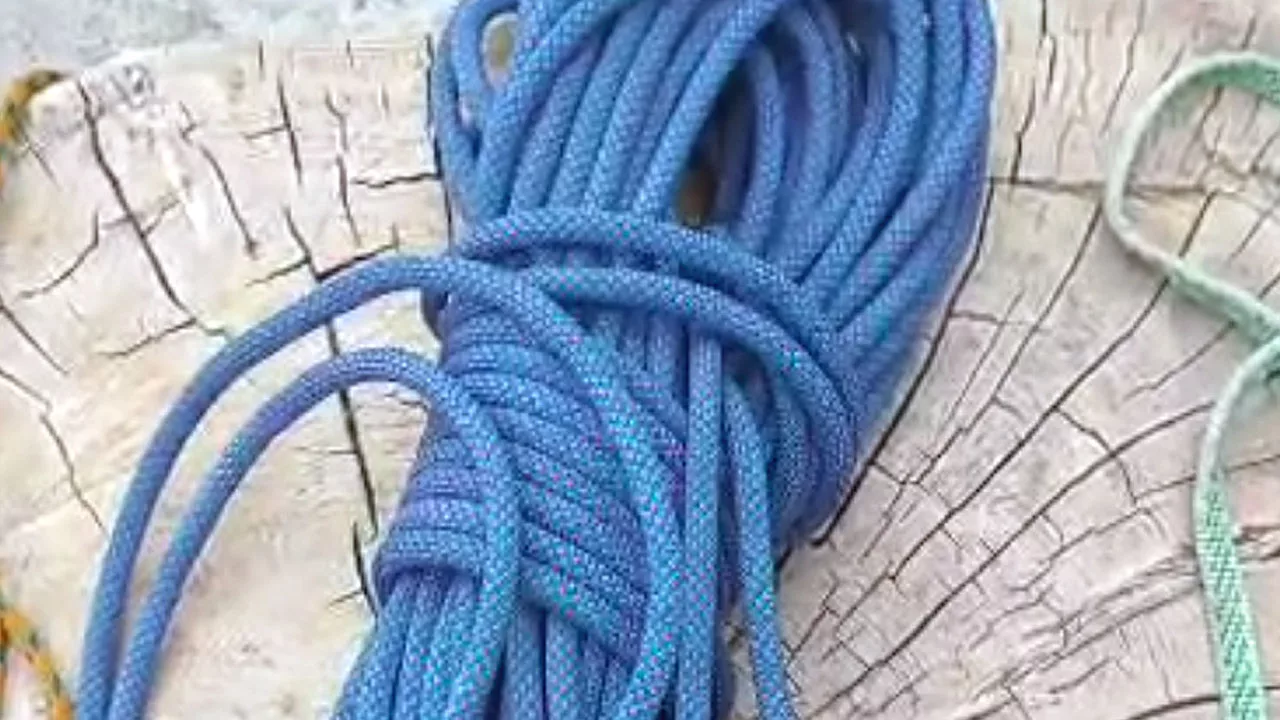
Example: “As I tied into the rope, I felt a surge of confidence, knowing it would be my reliable companion throughout the climb.”
14. Slings and Runners: “Extend your reach and ensure optimal protection!”
Usage: Slings and runners are nylon or Dyneema loops used to extend protection, equalize anchors, or create anchor points.
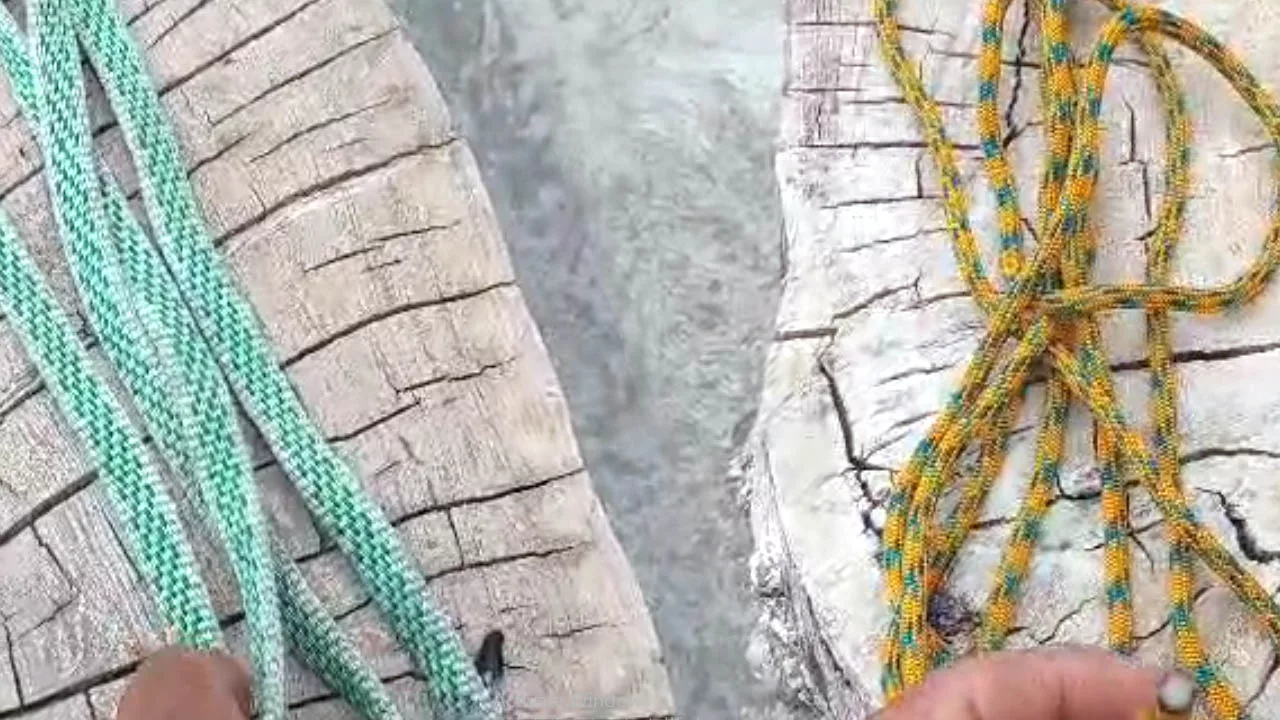
Example: “Using a sling, I extended my placement to reduce rope drag and basically, to ensure the optimal placement of my protection.”
15. Cord: “Versatile and reliable, your lifeline in the mountains!”
Usage: A cord refers to a strong and flexible rope-like accessory used in various climbing applications, such as prusik loops, anchor building, or gear organization.
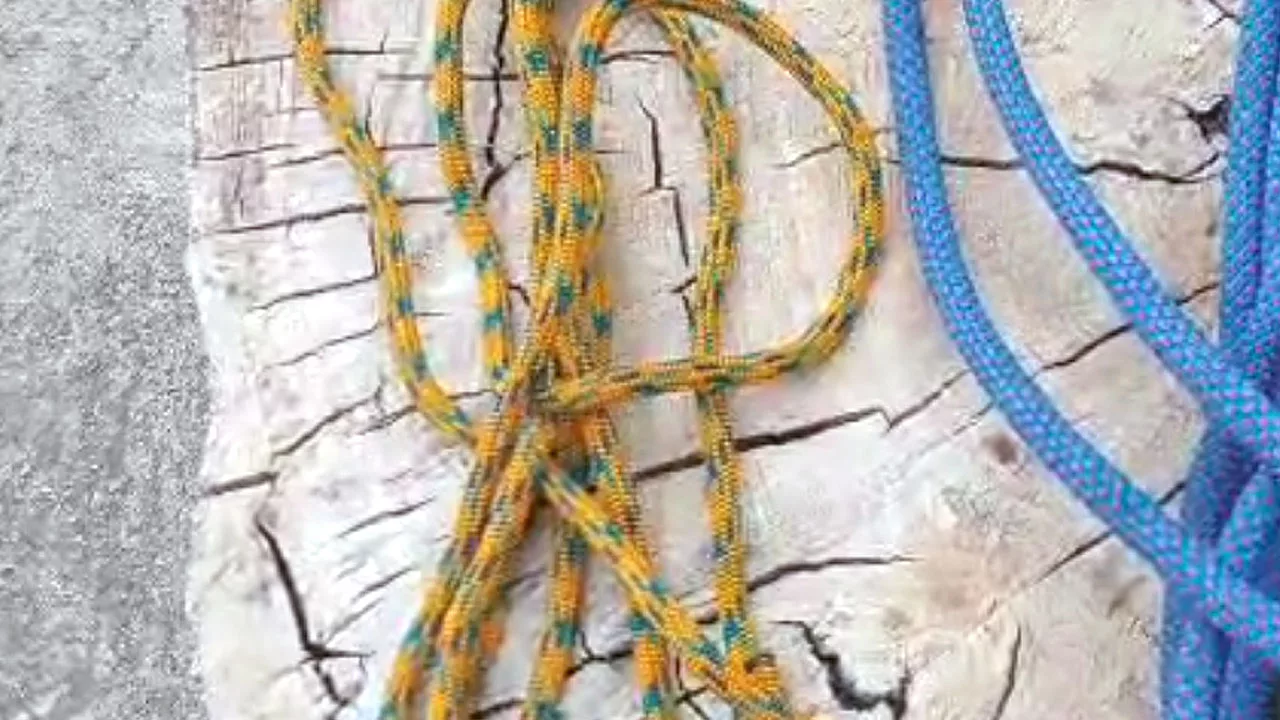
Example: “I used a length of cord to create a prusik loop, allowing me to ascend the rope effortlessly during a self-rescue scenario.”
Learn about the Breaking Strength of Equipment
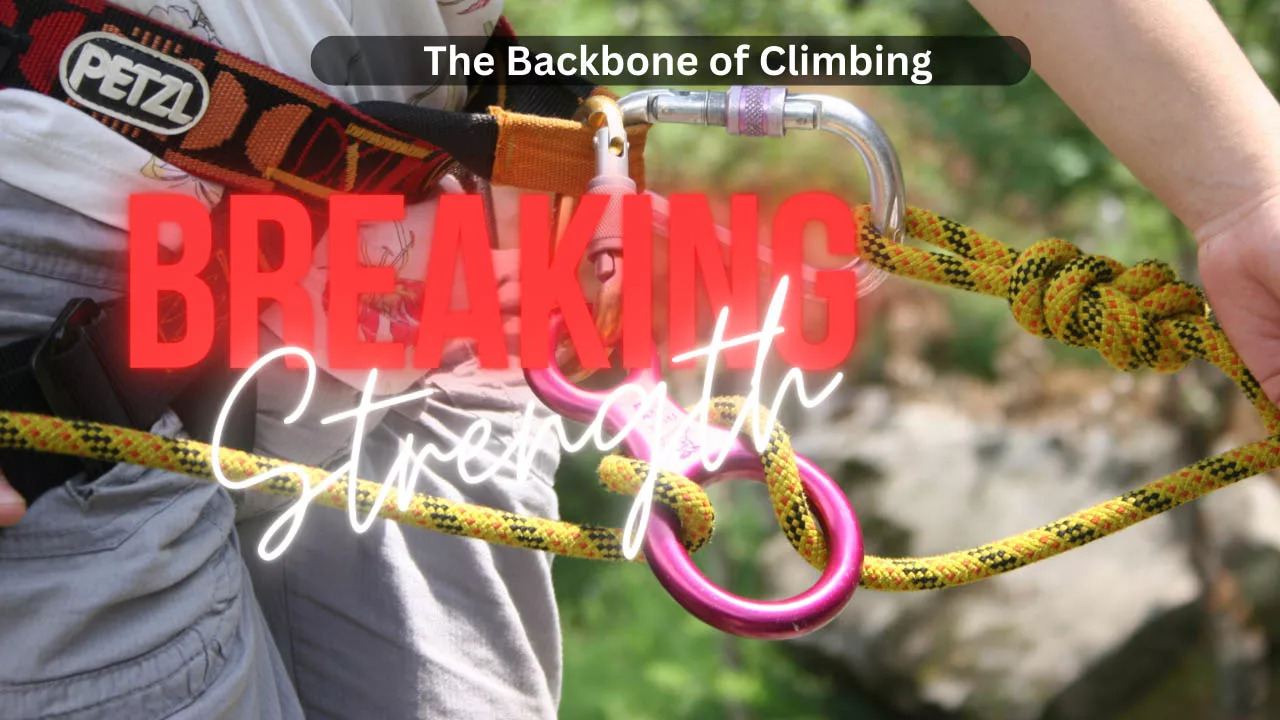
Final Words
According to Ascent Descent Adventures research study, mountain climbing, and trekking accidents occur at a rate of 43% during the last five years. The majority of accidents are caused by a lack of suitable gear, as well as poor training and equipment.
As you venture into the realm of mountain climbing, the knowledge of rock climbing equipment becomes an invaluable asset. From the snug fit of your climbing shoes to the secure anchor points provided by cams and nuts. Each term we’ve explored unveils a vital aspect of the gear that contributes to your safety and success. Remember, these terms are not just words on a page but tangible elements that will accompany you on your journey, etching memories in your mind as you conquer the heights. So, equip yourself with this understanding, and be prepared with the right tools. Lastly, embrace the thrill of the mountains, knowing that you know how to navigate the vertical terrain with confidence and finesse. Happy climbing!
